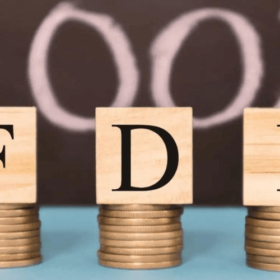 "Import and Export Tax" Import and export taxes are indirect taxes on goods permitted to be exported or imported across Vietnam's border.
Tax rate (Import-export tax)
The import and export tax rates (Import and Export Tax) are frequently changed. Therefore, businesses should regularly update the latest tax rates. Import tax rates are divided into 3 types: ordinary tax rates, preferential tax rates and special preferential tax rates.
"Import and Export Tax" Import and export taxes are indirect taxes on goods permitted to be exported or imported across Vietnam's border.
Tax rate (Import-export tax)
The import and export tax rates (Import and Export Tax) are frequently changed. Therefore, businesses should regularly update the latest tax rates. Import tax rates are divided into 3 types: ordinary tax rates, preferential tax rates and special preferential tax rates.
- Preferential rates apply to imports from countries applying Most Favored Nation (MFN, also known as Normal Trade Relations) status with Vietnam. MFN rates are in line with Vietnam's commitments to the WTO and are applied to imports from other WTO member countries.
- Special preferential rates apply to imported goods originating from countries, groups of countries or territories that carry most favored nation treatment in trade relations with Vietnam under a free trade area regime. , customs union or to facilitate border trade exchanges and other special preferential cases.
- Ordinary tax rates apply to imported goods originating from countries, groups of countries or territories that do not implement most-favored-nation treatment and do not implement special import tax incentives with Vietnam. Ordinary tax rates are applied uniformly by 150% of the preferential tax rate for each corresponding item specified in the Preferential Import Tariff.
- Special-use machinery and equipment, transport means and construction materials (which cannot be produced in the country) imported to create fixed assets of investment incentive projects;
- Machinery, equipment, specialized transport means, raw materials (which cannot be produced in the country), medical equipment and office equipment imported for oil and gas activities;
- Raw materials, supplies and components imported for processing export products; finished products imported to attach to processed products;
- Raw materials, supplies and components imported to produce export goods;
- Goods manufactured, processed, recycled or assembled in non-tariff areas do not use imported raw materials and components when being imported into the domestic market;
- Raw materials, supplies and components which cannot be produced domestically can be imported for production of a number of preferential investment projects;
- Goods temporarily imported, re-exported or temporarily exported, re-imported for warranty, repair or replacement.
- Goods have paid import tax but are not actually imported;
- Imported materials have not been used in production and must be re-exported to foreign goods owners or re-exported to a third country or sold into non-tariff zones;
- Enterprises importing raw materials and materials to produce domestic consumer goods then find export markets and put these raw materials and supplies into production of exported goods, actually exporting products.
EXPLORE MORE
1. Corporate income tax ( "CIT")
2. V.a.t tax ( "VAT")
3. personal income tax ( "PIT")
4. Foreign withholding tax ( "NTNN")
5. Import and export tax ( "XNK")
6. Special consumption tax ( "SST")
7. Transfer pricing - Affiliate transactions ( "CG-GDLK")
8. Electronic bill ( "Investment Council")
9. Insurance - Salary ( "BH-TL")









